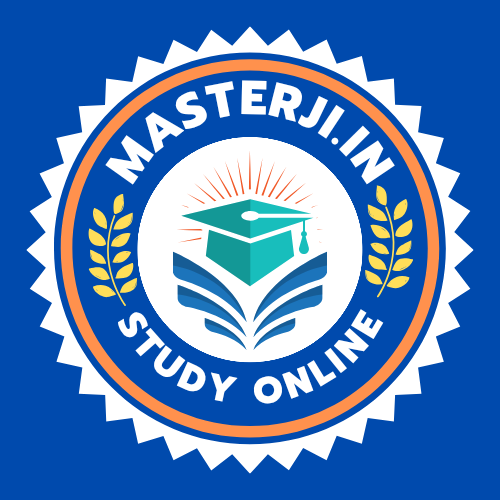Mastering Clauses: Notes, Tricks & NCERT Solutions | Masterji.in
Clauses in are an essential part of English grammar, helping to structure sentences effectively. A clause is a group of words containing a subject and a verb. Understanding different types of clauses is crucial for improving writing and comprehension skills.
Clauses MCQs | Clauses Online Test
Clauses notes, tricks, and NCERT solutions, at Masterji.in for expert English notes and easy-to-understand explanations.
What is Clause (उपवाक्य) क्या होता है?
परिभाषा:
किसी वाक्य का वह भाग जिसमें एक विषय (Subject) और एक क्रिया (Verb) होती है तथा जो बड़े वाक्य का हिस्सा होता है, उसे Clause (उपवाक्य) कहते हैं। यह अपने आप में एक वाक्य का भाग होता है लेकिन यह हमेशा स्वतंत्र रूप से पूरा अर्थ नहीं देता।
Types of Clauses (उपवाक्य के प्रकार)
किसी भी वाक्य में उपवाक्य (Clause) मुख्य रूप से तीन प्रकार के होते हैं:
- Principal Clause (मुख्य उपवाक्य)
- Subordinate Clause (आधीन उपवाक्य)
- Coordinate Clause (समन्वयी उपवाक्य)
अब इन तीनों को विस्तार से समझते हैं:
1. Principal Clause (मुख्य उपवाक्य)
यह वह उपवाक्य होता है जो अपने आप में पूरा अर्थ देता है और किसी अन्य उपवाक्य पर निर्भर नहीं करता। इसे Independent Clause (स्वतंत्र उपवाक्य) भी कहा जाता है।
Examples:
- I like ice cream. (मुझे आइसक्रीम पसंद है।)
- She is very intelligent. (वह बहुत बुद्धिमान है।)
- We will go to the market. (हम बाजार जाएंगे।)
👉 ये सभी वाक्य अपने आप में पूरे हैं और किसी अन्य उपवाक्य पर निर्भर नहीं हैं।
2. Subordinate Clause (आधीन उपवाक्य)
यह उपवाक्य अपने आप में पूरा अर्थ नहीं देता और मुख्य उपवाक्य (Principal Clause) पर निर्भर रहता है। इसे Dependent Clause (निर्भर उपवाक्य) भी कहते हैं।
Subordinate Clause के प्रकार:
(i) Noun Clause (संज्ञा उपवाक्य)
यह वाक्य में संज्ञा (Noun) की तरह कार्य करता है और अक्सर that, what, who, how, why, whether आदि शब्दों से शुरू होता है।
👉 Examples:
- I know that he is honest. (मुझे पता है कि वह ईमानदार है।)
- Tell me what you want. (मुझे बताओ कि तुम्हें क्या चाहिए।)
(ii) Adjective Clause (विशेषण उपवाक्य)
यह किसी संज्ञा (Noun) या सर्वनाम (Pronoun) की विशेषता बताने के लिए प्रयुक्त होता है। यह आमतौर पर who, whom, whose, which, that आदि से शुरू होता है।
👉 Examples:
- The boy who won the race is my friend. (लड़का जिसने दौड़ जीती, मेरा दोस्त है।)
- This is the book that I was looking for. (यह वह किताब है जिसे मैं ढूंढ रहा था।)
(iii) Adverb Clause (क्रिया विशेषण उपवाक्य)
यह किसी वाक्य में क्रिया (Verb), विशेषण (Adjective) या अन्य क्रिया विशेषण की विशेषता बताता है। यह अक्सर because, although, if, when, while, since, unless, as, so that आदि से शुरू होता है।
👉 Examples:
- She left because she was tired. (वह चली गई क्योंकि वह थकी हुई थी।)
- If you study hard, you will pass. (अगर तुम मेहनत से पढ़ोगे, तो तुम पास हो जाओगे।)
3. Coordinate Clause (समन्वयी उपवाक्य)
जब दो या अधिक उपवाक्य समान स्तर पर होते हैं और किसी Coordinating Conjunction (समन्वयी संयोजक) जैसे and, but, or, nor, so, yet से जुड़े होते हैं, तो उन्हें Coordinate Clause कहते हैं।
Examples:
- I wanted to go outside, but it was raining. (मैं बाहर जाना चाहता था, लेकिन बारिश हो रही थी।)
- She is smart and she works hard. (वह समझदार है और वह कड़ी मेहनत करती है।)
- He must run fast or he will lose the race. (उसे तेज दौड़ना होगा, नहीं तो वह दौड़ हार जाएगा।)
FANBOYS Trick to Identify Coordinate Clauses
FANBOYS एक Mnemonic Trick (याद रखने की तकनीक) है, जिससे आप आसानी से Coordinate Clause (समन्वयी उपवाक्य) पहचान सकते हैं।
FANBOYS का मतलब होता है:
How to Use FANBOYS to Identify Coordinate Clauses?
✅ Coordinate Clause की पहचान:
- अगर दो वाक्य FANBOYS (For, And, Nor, But, Or, Yet, So) से जुड़े हों और दोनों ही स्वतंत्र रूप से पूर्ण अर्थ रखते हों, तो वे Coordinate Clauses होते हैं।
✅ Examples Using FANBOYS:
- F (For) → He stayed at home, for he was feeling sick.
(वह घर पर रहा, क्योंकि वह बीमार महसूस कर रहा था।) - A (And) → She loves to dance, and she also sings well.
(उसे नाचना पसंद है, और वह अच्छा गाती भी है।) - N (Nor) → He didn’t call, nor did he send a message.
(उसने न कॉल किया, न ही संदेश भेजा।) - B (But) → I wanted to play, but it was raining outside.
(मैं खेलना चाहता था, लेकिन बाहर बारिश हो रही थी।) - O (Or) → You can take tea, or you can have coffee.
(तुम चाय ले सकते हो, या तुम कॉफी ले सकते हो।) - Y (Yet) → He was tired, yet he continued working.
(वह थका हुआ था, फिर भी उसने काम जारी रखा।) - S (So) → It was very cold, so we lit a fire.
(बहुत ठंड थी, इसलिए हमने आग जलाई।)
Quick Trick to Identify Coordinate Clauses Using FANBOYS:
- वाक्य में FANBOYS (For, And, Nor, But, Or, Yet, So) है?
- दोनों हिस्से अलग-अलग स्वतंत्र वाक्य की तरह समझ में आते हैं?
- अगर हाँ, तो वह Coordinate Clause है!
